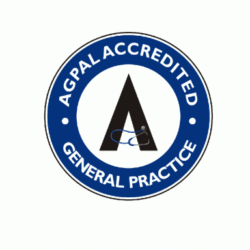Although it does not happen every year, the events that unfolded in 2016 were a powerful reminder that it is best to be over prepared than under prepared.
So what should we do to prepare ourselves?
- If you have known asthma ensure you have an asthma action plan in place. Be sure you know how and when to take your preventer medications and that you have a valid prescription (including a repeat) at all times. Be vigilant in taking your medications every day and if you are sensitive to grass pollens, keep track of pollen counts via your State pollen count website and the Bureau of Meteorology website.
- If you suffer from seasonal hayfever, even midly, consider speaking with your Doctor about a preventer medication for the Spring months. Some Doctors may recommend using anti-histamine medications daily (as a preventative measure) even if you are not currently symptomatic.
- If you ever suffer from wheezing, shortness of breath, exercise or cold- induced respiratory symptoms, speak to your Doctor as you may have undiagnosed asthma. They can refer you for lung function testing and provide you with the best advice to avoid an acute onset.
- Try to stay inside with windows and doors closed during thunderstorms between October and December.
- Seek medical attention quickly if your preventer medication is not providing you with symptom relief.




